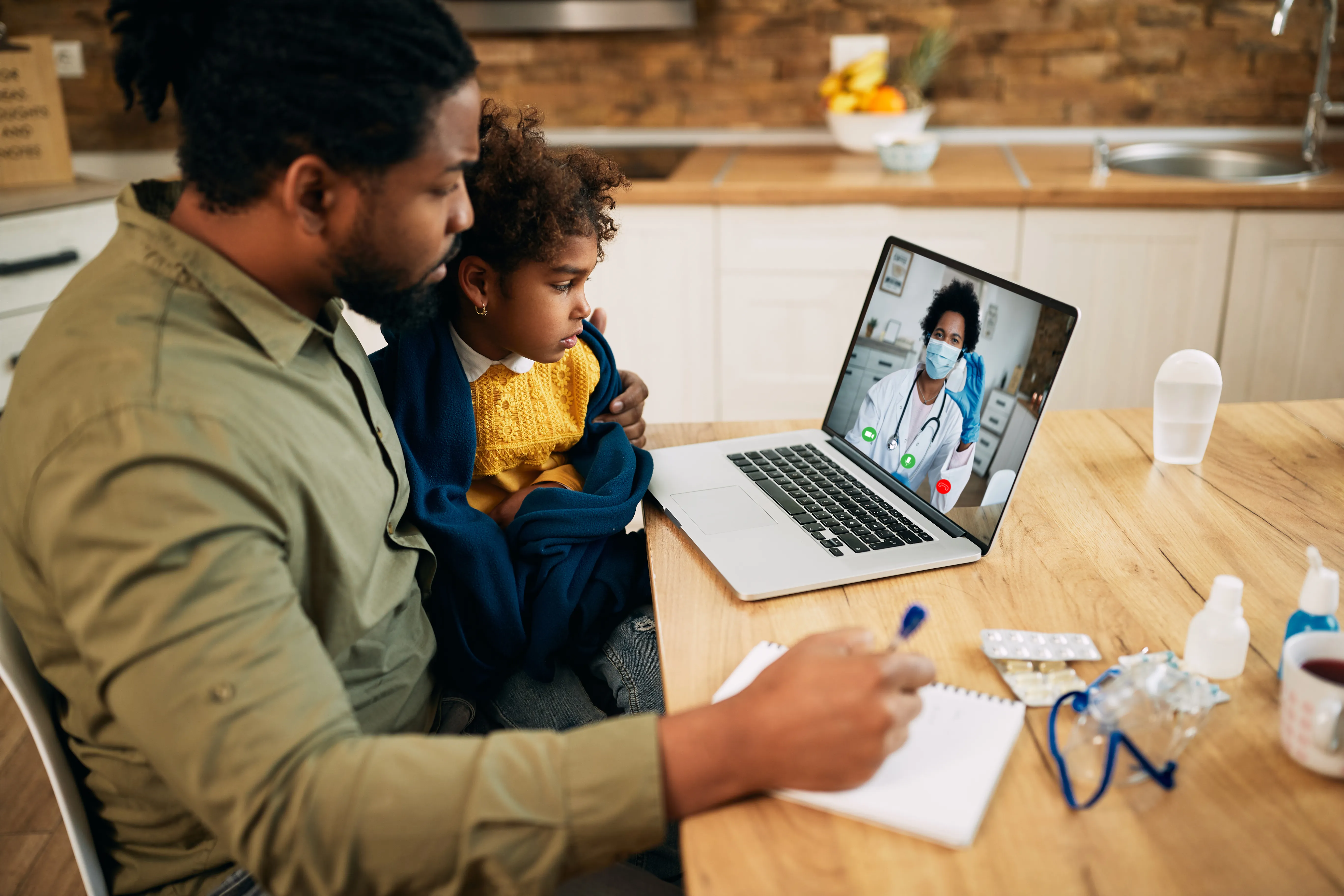Healthcare is one of Africa’s most regionally insulated sectors. Unlike banks or large agricultural firms, there are very few healthcare companies that have scaled across the whole continent.
Each healthcare market is vastly different from the other in terms of pricing, insurance and public sector activity. Yet Africa’s healthcare market is estimated to be worth around $259bn, according to the Virginia Economic Development Partnership (VEDP). It is expected to become the second biggest market after the US by 2030.
Ugandan telemedicine startup Rocket Health has big plans to take on the pan-African marketplace and will begin by scaling in Kenya after raising $5m in a Series A in March.
“We are definitely looking to be pan-African,” says co-founder and CEO Davis Musinguzi. “We want to be the world class telemedicine healthcare provider across Africa. It’s the most underfunded healthcare region in the world and so the opportunities are huge”.
Rocket Health was created in 2012 by five co-founders working in Uganda’s health industry who were frustrated with the level of inefficiency in the sector.
Musinguzi says that many patients ignore symptoms and only come to see a doctor when their disease has progressed significantly. This lowers the chances of successful treatment, leading to unnecessary deaths. This gave rise to the idea of creating telephone consultations.
“We thought that if we could find a way to leverage the trend of technologies, the adoption of phones and smartphones, then there is definitely an opportunity for us to create a minimum viable product for a remote service related to healthcare. That’s how we set up a medical call centre. It operated 24 hours a day, seven days a week”.
But as the service gained popularity, registering around 7,000 users in the first six months, the management realised they could add additional products to the core product.
They began to offer lab tests and pharmaceutical delivery services through a team of delivery drivers. Rocket Health now operates an end-to-end service to customers’ homes.
“We decided that you wouldn’t have to walk into a pharmacy or a lab, but we would actually deliver the services to you. If you need a lab test we will come to your location, take the sample, run the tests and get the doctors to call you back to explain the results.”
Musinguzi says that the system can identify around 90% of diseases, and doctors will visit a patient to deal with cases that require a face-to-face consultation. A decade later, Rocket Health has around 40,000 active customers and 30 doctors working at its HQ in Uganda’s capital city of Kampala.
Telemedicine popularity grows
The CEO reports that the service grew by about 450% year-on-year between 2020 and 2021, largely due to Covid-19. A report by McKinsey found that global telemedicine utilisation surged in the months following the outbreak of Covid-19 in 2020 before stabilising at levels 38 times higher than before the pandemic.
“It has put lots of new entrants in this mode of care, which is fantastic,” says Musinguzi.
Retention rates are also high as once customers can manage their healthcare needs without spending hours waiting at public or private hospitals there is “often no going back”.
The co-founder says that the average waiting time at an outpatient health facility in Uganda is four to five hours. It requires multiple interactions with different arms of the hospital including the doctor’s office, the lab, the pharmacy and the accounting desk.
Rocket Health has cut this down to a singular interaction that takes one to two hours, from initial phone call to the delivery of medicine or a follow-up consultation.
The current service runs on USSD technology and via a mobile phone – “fantastic mass market channels”, Muzinguzi says. But after the latest fundraising round, the healthtech will look to create a mobile app that opens up a wide range of auxiliary services.
This is similar to a lot of tech companies in Africa, from a diverse range of sectors, that are currently looking to embed financial services on top of a core financial product.
The idea is to create new revenue streams through new services. Rocket Health says it will look at creating a digital wallet that has a saving mechanism and a product that allows clients to see their health records from a range of healthcare providers.
Journey to new markets
Rocket Health’s latest round was led by Creadev, an evergreen investment fund backed by the Mulliez family of French entrepreneurs. Early-stage African investors Grenfell Holdings and LoftyInc Capital Management also participated in the round.
The investment will be used to develop Rocket Health’s technology and also to expand to neighbouring Kenya.
But compared to Uganda, where Rocket Health is one of the only telemedicine companies, Kenya is a much tougher market. It has a wide range of foreign and domestic companies working in many different areas of the healthcare pipeline.
My Dawa, for example, is an online pharmaceutical delivery company. Dial Daktari is a telemedicine company that offers much the same services as Rocket Health while MyPocketDoctor is a Filipino company with global operations that has opened offices in Kenya.
Hospitals have also started offering telemedicine services, which offers another area of competition. Muzinguzi, however, believes that none of the competitors have yet to offer an end-to-end service like Rocket Health.
“All of them have pros and cons but I don’t think any of them is going to have the winning model,” he says. “You may find that one is doing online pharmacy and delivery services only and the other one is only doing lab tests”.
He believes that heavy investments in Rocket Health’s technology will give its products a “winning edge” over competitors, especially in terms of user interface. He adds that competition is also useful for the industry because it increases product awareness in the general population.
Indeed, this is one of the industry’s main problems: many people believe that healthcare must be conducted in face-to-face meetings. There is a higher degree of product hesitancy than in other sectors where the benefits of tech-enabled services are more obvious.
Nonetheless, Kenya’s health sector grew by 8.4% in the third quarter of 2021. A dynamic market and a tech-savvy population should set the stage for rapid growth for Rocket Health.
The CEO expects the firm to grow by a factor of eight after its entry into the Kenyan marketplace. A key strategy for getting new customers onboard will be partnering with the same health insurers that Rocket Health already partners with in Uganda.
Outside Kenya, there are several telemedicine companies in Nigeria with competitors like Health Connect 24×7, iWello, CribMD and mDoc. Egyptian startup Veezeta is one of the best funded e-health companies, raising $40m in a Series D in February 2020 to expand across Africa and the Middle East. Rocket Health will look to challenge these market players in the future.

To keep up with the latest in African tech, subscribe to Tech54
This article was originally published in Tech54, a biweekly newsletter produced by African Business and Briter Bridges rounding up the most exciting developments in the world of African tech. You can subscribe to the newsletter here.
Want to continue reading? Subscribe today.
You've read all your free articles for this month! Subscribe now to enjoy full access to our content.
Digital Monthly
£8.00 / month
Receive full unlimited access to our articles, opinions, podcasts and more.
Digital Yearly
£70.00 / year
Our best value offer - save £26 and gain access to all of our digital content for an entire year!
 Sign in with Google
Sign in with Google 



